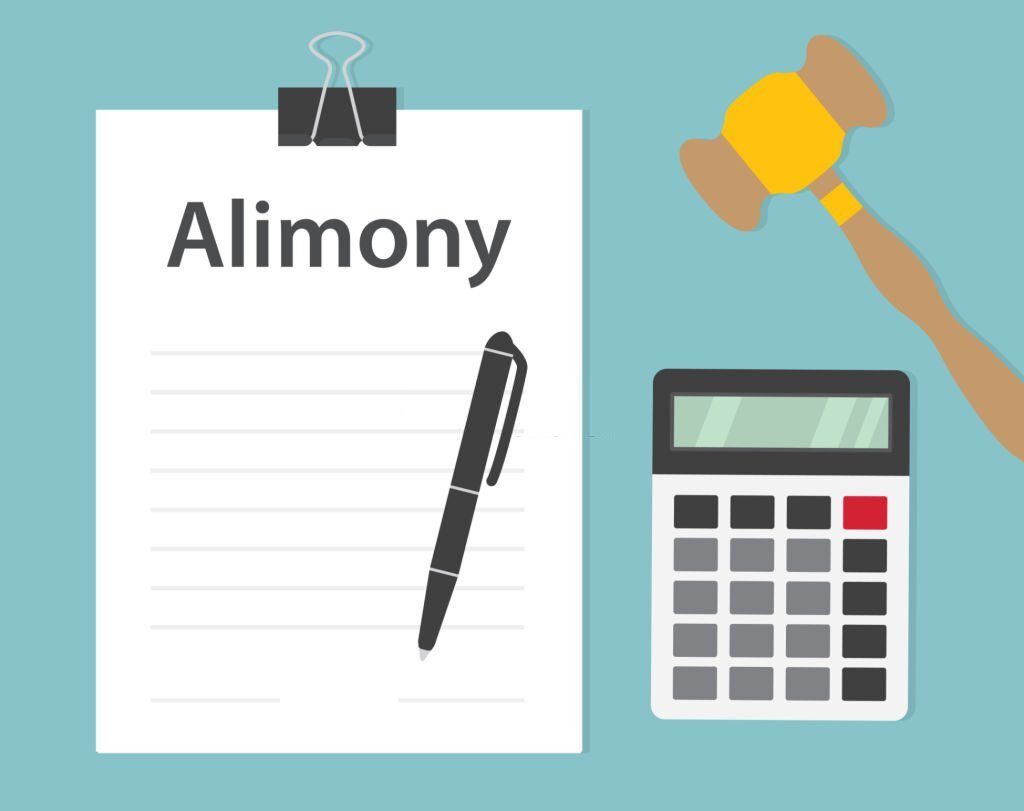
The alimony laws governing spousal support in Florida is different from what is obtainable in other states. Read further to grasp the peculiarity of the FL alimony law.
All 50 states in America are alimony states, meaning states that have enacted laws permitting a spouse who cannot work full time or with a lower income to request payments from the other spouse to support themselves after a divorce.
What is Alimony?
Also referred to as “spousal support” or “spousal maintenance” in Sunshine State, alimony is the series of payments made by one spouse (the payor spouse) to another (the supported or payee spouse) after the divorce.
Before the alimony payments commence, there has to be a written order or agreement which requires the payor to support the payee with a stipulated amount of money.
This agreement eliminates any disputes in the future about why the payment was made or when it’s not made.
Type of Alimony Laws Practiced in FL

Types of alimony in Florida
Alimony in Florida is divided into five categories: temporary, bridge-the-gap, rehabilitative, durational, and permanent. The form, duration, and amount of alimony support can all be negotiated between the parties. As stated in the statute, if you can’t agree, the judge will assess your situation and make a decision for you.
Temporary Spousal Support in Florida
During the divorce process, a dependent spouse can receive temporary support. The requesting spouse must show a need for support and that the other spouse has the financial means to pay before the court can award support.
Temporary support will assist the lower-earning spouse in remaining financially secure during the prolonged divorce process and will terminate once the divorce is finalized.
Bridge-the-gap Support in FL
Bridge-the-gap alimony, which typically helps the receiving spouse meet legitimate short-term expenses while moving from married to single, is only available in a few states, Florida inclusive.
The needy spouse, for instance, could use the money to pay bills while expecting the marital house to sell, or to cover other expenses while looking for a full-time job following the divorce.
Bridge-the-gap support is limited to two years and ends if the paying spouse dies or the dependent spouse remarries. (Fla. Stat. Ann. § 61.08 (5) (2018).)
Rehabilitative Support in Florida
Rehabilitative support is perhaps the most popular form of alimony in Florida. When one spouse can become self-sufficient but requires time and financial support to rehabilitate past abilities or obtain the education, training, or work experience needed to gain critical skills and enter the workforce, the court gives rehabilitative support.
Spouses must prepare a precise and defined rehabilitation plan for the court to consider before the court grants rehabilitative alimony.
Durational support in FL
In the same way that rehabilitative support has a time limit, durational support has one. However, no rehabilitative strategy is required.
When the supported spouse requires financial assistance for a specific amount of time following the divorce but does not qualify for permanent alimony, durational alimony is acceptable.
Support may be limited to the duration of the marriage. If you were married for ten years, for example, your alimony award may not exceed ten years.
Permanent Alimony in Florida
Permanent alimony is uncommon, and the court only awards it to spouses who require financial support and will not be able to sustain themselves in the future.
In circumstances where the supported spouse is disabled, elderly, or caring for a little kid with special needs, permanent alimony may be suitable. When deciding on a final decision, the court will examine the duration of the couple’s marriage in addition to establishing particular situations that need permanent assistance.
Durational, rehabilitative, and permanent alimony, like bridge-the-gap alimony, ceases when the paying spouse dies or the supported spouse remarries. (Fla. Stat. Ann. § 61.08 (2018).)
Who Pays Alimony in Florida?
In Florida alimony law, the spouse that makes most of the money will share that income with the other spouse. The idea behind who pays for alimony is to considerably level up the living standard of the dependent spouse to what it was while the marriage was on.
Regarding the sex that pays, alimony in Sunshine State is gender-neutral, meaning either spouse can request support from the other. As long as the alimony can be provided to the requesting spouse, then it will most likely be granted.
So a husband can receive alimony from a wife in Florida if the above conditions are met.
How Long Does Spousal Support Last in FL?

The judge will decide how long the alimony payment should last in Florida
The duration to pay alimony in Florida can differ depending on the individual judge and circumstances. However, you should expect to pay spousal support for a duration of 80-70% of the length of the marriage lasted. So assuming you were married for 10 years, the spousal support duration will most likely be between 6 to 7 years.
As provided by the alimony laws of FL, rehabilitative and permanent support stops if either spouse dies or the supported spouse remarries.
How to Collect Spousal Support Arrears in Florida
When it comes to collecting spousal support in Florida, you have a few choices if your ex-spouse has failed to make alimony payments as ordered by the court. Debts for spousal support are frequently given priority among debtors under US law.
Factors That Influence Alimony in Florida
The average amount payable as spousal support in Florida after divorce is determined by various factors. But the major factor you have to understand is “the standard of living of the marriage.”
To determine the final amounts for rehabilitative and permanent support in FL, the courts in FL take into consideration the income of the spouses, plus other factors like:
- earning capacity of each spouse.
- the duration of the relationship (seven or fewer years is short-term, seven-seventeen years is moderate-term, and 17 or more years is long-term)
- the ability of the paying spouse to pay, considering assets, the standard of living, earning capacity, as well as earned and unearned income.
- the extent of contribution the supported spouse gave to the other’s educational pursuit or professional license during the marriage
- how long the marriage lasted
- the needs of each spouse
- the assets and debts of each spouse including separate property
- each party’s tax consequences
- the ability of the supported spouse to gain employment without interfering with their children’s care
- each spouse’s health and age
- each party’s balance of hardships
- whether there is a documented history of domestic violence against the children or either party
- will the dependent spouse be self-supporting within a reasonable period
- any criminal conviction of an abusive spouse
- any other factors which the court wishes to consider
- If either spouse committed adultery during the marriage, the court in Florida may look at how the affair affected the couple’s finances.
This is the main measure the court uses to determine the amount to be paid in Sunshine State. The principle behind the standard of living of the marriage is that after the marriage breakup, both spouses should continue living within the same standard they lived while the marriage lasted.
How Alimony is Calculated in FL

How Alimony is Calculated in Florida
When it comes to determining how much and what type of alimony is appropriate, courts do not have a formula to follow.
The amount to be paid as spousal support in Florida is calculated after considering the above-stated factors. Whichever option is adopted it is reflected in the Alimony Calculator
But to be explicit about how to calculate spousal support in FL, you may need to consult your spousal support attorney.
>>> Florida Spousal Support Calculator
Importance of Using a Skilled Florida Spousal Support Attorney
If you’re getting a divorce in Florida and need to negotiate or re-negotiate spousal support, you’ve definitely got a lot of questions and want to seek competent legal guidance. Though state Supreme Courts have supported lifetime spousal support, your circumstances may or may not fulfill the requirements. FT courts may judge your case differently based on the merits of you and your previous spouse. There are so many variables to consider.
If you want to get spousal support for the rest of your life or if you want to fight against it in Florida, an expert divorce lawyer can help. Depending on the objective and the desire of the adversary attorney to bargain in good faith, you’ll need attorneys that are
both empathetic and strong.
For the convenience of our members, we have an up-to-date directory of FT divorce and spousal support attorneys who can help with a variety of issues. For legal advice and
representation on spousal support that is powerful and well-informed.
Click Here to Get our Free Iowa Alimony recommendation.
FAQ About Florida Alimony Laws
Here are Frequently Asked Questions about spousal support laws in FL:
Can a Husband get Alimony in FL?
Yes. In Florida, alimony payment is gender-neutral, meaning the sex that pays or receives is not the main determinant, but other factors as stated above. For details click here.
Who Qualifies for Alimony in Florida?
Just as either spouse can pay or receive, the party that qualifies to receive spousal support is the dependent party while the marriage lasted. This means that in FL, the spouse that had lesser or no income when the marriage was on is also the one qualified to receive alimony. Click here for details
How Long do you have to be Married to get Alimony in FL?
To understand how long alimony lasts in Florida, you have to take into consideration how long the marriage lasted.
However, bear in mind that there is no limit to the duration you can pay or receive alimony for marriages that lasted 10-20 years or more. Any marriage that lasted below 20 years will not pay nor receive alimony that exceeds 50% of the duration of the marriage.
Is Alimony Tax Deductible in Florida?
Following the passage of the Tax Cuts and Jobs Act, which altered the link between alimony and taxes dramatically in Florida and all over the US, alimony payments are no longer tax deductible for the payer and are no longer recognized as income for the recipient spouse as of January 1, 2019.
Is Alimony Mandatory in Sunshine State?
Alimony is mandatory in Florida as long as one of the spouses earns or owns assets that can be relied upon to support the other spouse after the marriage breaks down.
Can Alimony be increased in Florida?
Alimony amount or duration can be increased or decreased due to changes in the financial circumstances of the parties in different ways, including:
- an increase or decrease in the income of the alimony recipient
- if it’s determined that the original alimony awarded is inadequate
- loss to the alimony recipient’s financial assets
- an increase in the justified expenses of the alimony recipient
- when the financial condition of the receiving spouse fails to improve as originally expected
Can you go to Jail for Not Paying Spousal Support in FL?
Technically, you will not be jailed for not paying alimony in Florida. While there are varying consequences for not paying alimony, you can still end up in jail as a result. Here is how.
If it’s a Florida court-ordered spousal support that you refuse to pay, it means you are in violation of a court order meaning you can be prosecuted for being in contempt of court if contempt proceedings are brought up against you. This could attract a jail term in FL}.
How to Modify Spousal Support in Florida

How to Avoid spousal support in Florida
When necessary, Florida law allows for a spousal support modification. When it comes to alimony, courts in FL usually try to do their best to create judgments that are fair and
effective in the long run. Nevertheless, conditions change over time, and these changes may compel a revision or modification of the initial order.
When filing for a spousal support modification in Florida, keep in mind that the courts will only entertain the motion if there has been a significant and long-term change in circumstances. A brief problem is unlikely to be significant enough to warrant a revision in the initial alimony ruling. Likewise, dissatisfaction with the support order is not a valid reason for a revision in FL.
Bridge-the-gap alimony, on the other hand, cannot be changed. Courts can also change the amount of durational support, but not the length.
The following are some of the most common reasons for requesting an alimony modification in Florida:
- Retirement
- Remarriage
- Relocation
- Changes in income or employment
- Birth of a new child
- Health changes, including disability
- A new dependent
How to Avoid or End Spousal Support in FL
In Sunshine State, the spouse paying the alimony can successfully avoid or stop the alimony payment if he/she is able to prove any or all of the following points:
- that the dependent spouse is guilty of infidelity
- the spouse proves that he has no source of income
- the spouse remarries and has to take care of the new spouse however, he/she will continue paying the child support for children if any
- if the spouse is disabled and unable to earn a living
Florida Resource
- Florida Child Adoption Guidelines
- Florida Childcare Guidelines
- Florida Child Custody and Visitation Guidelines
- Florida Child Support Guidelines
- Florida Divorce Guidelines
- Florida Marital Property Guidelines
- Florida Spousal Support Guidelines
- How to Check Florida Child Support Payment History
Alimony Laws in all 50 States
A Alabama | Alaska | Arizona | Arkansas
C California | Colorado | Connecticut
D-H Delaware | Florida | Georgia | Hawaii
I Idaho | Illinois | Indiana | Iowa
K-L Kansas | Kentucky | Louisiana
M Maine | Maryland | Massachusetts | Michigan | Minnesota | Mississippi | Missouri | Montana
N Nebraska | Nevada | New Hampshire | New Jersey | New Mexico | New York | North Carolina | North Dakota
O Ohio | Oklahoma | Oregon
P-S Pennsylvania | Rhode Island | South Carolina | South Dakota
T-U Tennessee | Texas | Utah
V-W Vermont | Virginia | Washington | West Virginia | Wisconsin | Wyoming




